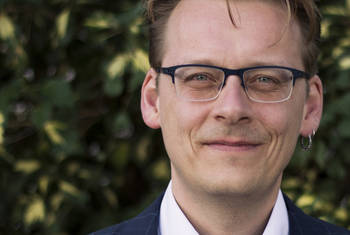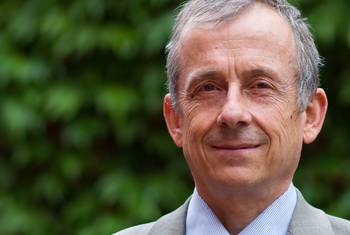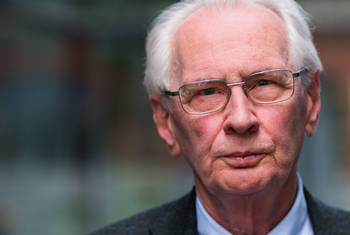Klaus Oschema How Does Medieval Historians' Use of the Notion of 'Europe' Compare to Its Use in the Middle Ages?
Klaus Oschema was appointed Adjunct Professor at the Ruprecht-Karls-University Heidelberg. Between 2009 and 2014, he was a member of the Young Academy Berlin-Brandenburg. Currently, Oschema is on research leave at the Princeton ‘Institute of Advanced Studies’ (USA). Oschema has published and taught extensively on matters of medieval society, particularly on the social structures of the aristocracy and imaginations of ‘Europe’. In his latest monograph, Oschema takes a critical stance on the historical analysis of the concept of ‘Europe’, arguing that the discursive use of ‘Europe’ by medieval societies needs to be reexamined.
Area of Research
Cultural and Intellectual History of the High and Late Middle Ages, Courts and Nobility, Idea of Europe in the Middle Ages and in Medieval Studies, Meta-Concepts Of World-Order in the Middle Ages, Concepts and Forms of Social and Political Organization in the Middle Ages, Astrologers as Experts in the Middle Ages
since 2015
Adjunct Professor of Medieval History
Heidelberg University (Ruprecht-Karls-Universität Heidelberg)
2012-2015
Associate Professor of Medieval History
Heidelberg University (Ruprecht-Karls-Universität Heidelberg)
2014
Acting Professor of Medieval History
Goethe University of Frankfurt (Goethe-Universität Frankfurt am Main)
2009-2011
Head of Research Project “Images of Europe in the Middle Ages”
University of Bern (Universität Bern)
2007-2012
Lecturer in Medieval History
Heidelberg University (Ruprecht-Karls-Universität Heidelberg)
2002-2007
Lecturer in Medieval History
University of Bern (Universität Bern)
2016-2017
Member
Institute for Advanced Study, Princeton University
2012
Habilitation
Heidelberg University (Ruprecht-Karls-Universität Heidelberg)
Thesis "Bilder von Europa im Mittelalter"
2004
PhD in Medieval History
École Pratique des Hautes Études, Paris and Technical University of Dresden, Germany
Thesis "Freundschaft und Nähe im spätmittelalterlichen Burgund. Studien zum Spannungsfeld von Emotion und Institution"
2000
Magister Artium in Medieval History, Philosophy and English
University of Bamberg (Otto-Friedrich-Universität Bamberg)
- Institut National des Langues et Civilisations Orientales (INALCO, Paris)
- The Medieval History Journal
- Viator
- Centre Européen d’Études Bourguignonnes
- German Association of Historians (“Verband der Historiker und Historikerinnen Deutschlands”)
- German Association of Medievalists (“Mediävistenverband”)
- Swiss Historical Society (“Schweizerische Gesellschaft für Geschichte”)
Fellowships
- Member at the Institute for Advanced Study at Princeton University
- Election as member of the German Young Academy (“Die Junge Akademie”) (Berlin) for a five- year term (2009)
Prizes
- Award of the Berne Centre of Medieval Studies for Young Medievalists
The research presented in this video shows the need to reflect precisely the analytical notions and frameworks used when looking at medieval societies, and the limitations of reference to history when tackling contemporary questions. Some of the main findings of the comparative analysis of modern and medieval concepts of Europe conducted by KLAUS OSCHEMA are that ‘Europe’ and ‘Christianity’ were not used synonymously in the medieval ages and that modern historical research on Europe is often inspired by contemporary needs and influences.
LT Video Publication DOI: https://doi.org/10.21036/LTPUB10069
Bilder von Europa im Mittelalter
- Klaus Oschema
- Mittelalter-Forschungen
- Published in 2013
Medieval Europe – Object and Ideology
- Oschema, Klaus; Pinheiro, Teresa; Cieszynska, Beata; Franco, José Eduardo
- Ideas of / for Europe. An Interdisciplinary Approach to European Identity
- Published in 2012
Chicago








